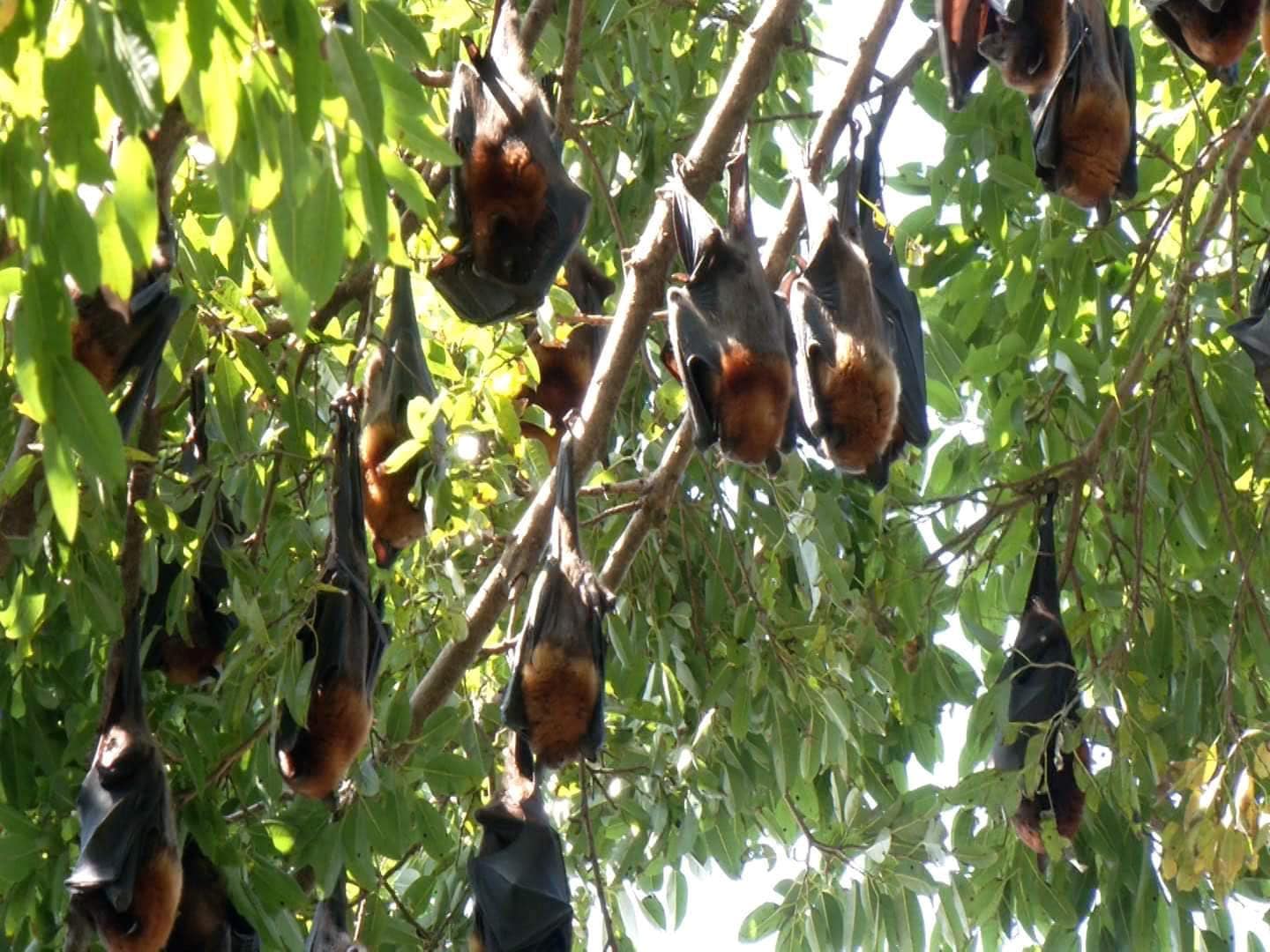In Negros Occidental, public told not to harm endangered bats

DO NOT DISTURB Environment officials are asking people not to disturb this colony of golden-crowned flying foxes, a critically endangered species of bat, roosting in a balete tree at Barangay 30 in Bacolod City. Photo taken on Nov. 6. —ADRIAN PRIETOS/CONTRIBUTOR
BACOLOD CITY — The provincial government in Negros Occidental has cautioned the public not to harm, catch, or kill endangered fruit bats that appeared to have made a balete tree in this capital city their roost.
Joan Gerangaya, the provincial environment and natural resources officer, said they did not know where this colony of more than 1,000 golden-crowned flying foxes (Acerodon jubatus) came from.
But fruits growing near the tree at Purok Paglaum in Barangay 30 here may have attracted these critically endangered bat species, he said. “There are mango, star apple, and ‘lomboy’ (Java plum) trees in the area,” he told the Inquirer.
Residents, he said, noticed the bats’ arrival in March this year.
Gerangaya said the balete tree where the colony is roosting is on private property.
Article continues after this advertisement“Bats are nocturnal and sleep during the day. Those that have taken up residence in Barangay 30 have probably adjusted to the city noise,” he added.
Article continues after this advertisementGerangaya reminded the public not to disturb or harm these bats. Under Republic Act No. 9147 or the Wildlife Resources Conservation and Protection Act, it is illegal to catch, kill, or harm endangered species, like bats.
Under this law, violators face imprisonment of four years and one day to six years and/or a fine of P50,000 to P500,000.
Endemic
The golden-crowned flying foxes are endemic to the Philippines, according to the Department of Environment and Natural Resources’ Biodiversity Management Bureau.
They are also known as fruit-eating bats and their feeding habit plays an important role in the ecosystem. As they eat fruits, they distribute the seeds all over the forest, contributing to reforestation in the country, it said.
READ: Camiguin eyes island bats as tourist attractions
However, habitat destruction and hunting pressure threaten the survival of this species.
The golden-crowned flying fox, whose survival has been threatened by deforestation and poaching, has been categorized as endangered under the International Union for Conservation of Nature’s Red List.